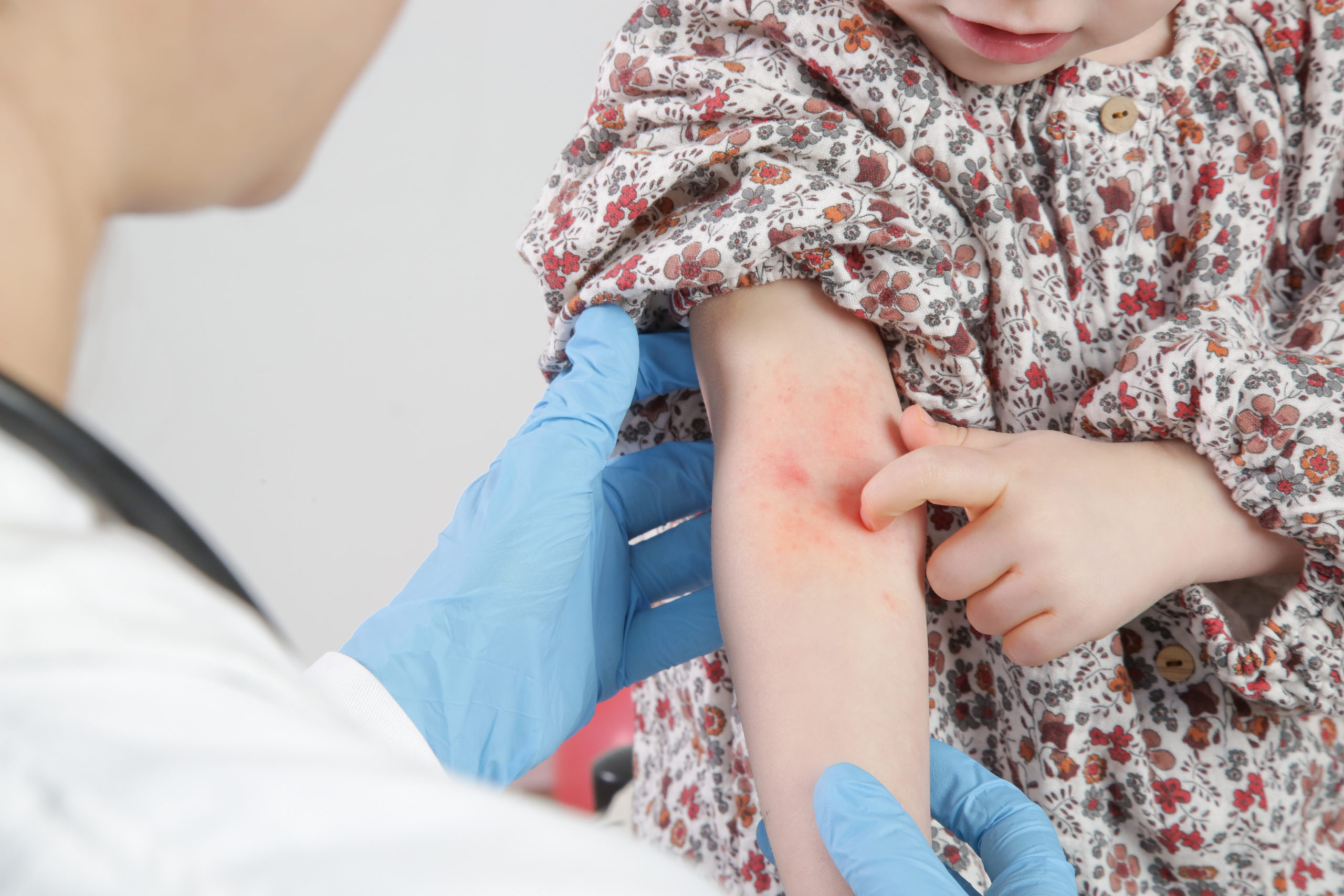Dermatitis a common skin irritation.
Symptoms of Dermatitis:
- A reddish-colored rash that gets larger over time.
- Different scaly areas that become red on the scrotum and penis of boys and on the labia and vagina of girls.
The appearance of pimples, blisters, ulcers or large bumps, as well as pus-filled sores in some cases, is also characteristic. It takes several days to get better.
Dermatitis is a skin problem, in the case of babies it develops in the skin area covered by the diaper. It is an irritative and inflammatory process caused by humidity conditions, friction and contact with urine, feces and other substances, such as plastic detergents, perfumes or other compounds. It affects both sexes equally and, in general terms, it usually occurs more frequently between six and twelve months of age.
It is considered that the irritant agent is not unique, it is considered that different factors influence the development of the process, such as friction, occlusion, excessive humidity or increased pH in the skin of the diaper area. It occurs when the used diaper is not changed often.
Knowing the nature of the dermatitis we suffer from is very important to use the most appropriate treatment.
Treatment: There are several creams for dermatitis and you can try to soothe the skin with cold, wet compresses.
To prevent this type of irritation, it is essential to maintain good hygiene in the area, ensuring that it always remains dry and clean.
It is recommended that lukewarm water or neutral soap be used and the use of products with perfumes, powders or similar chemical compounds is not recommended.
We have two types of dermatitis that we should not confuse, atopic dermatitis and allergic dermatitis. The cause of atopic dermatitis is unknown and allergic dermatitis is caused by an external agent.
Allergic dermatitis recurs each time the person comes into contact with a substance or products that cause it and then disappears. In contrast, atopic dermatitis does not usually go away or get better that easily. It is not uncommon for people with atopic dermatitis to also have food allergies, asthma, or spring allergies.







